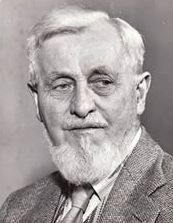The Key Above the Door
Book Details
| Title: | The Key Above the Door | ||||||||||
| Author: |
| ||||||||||
| Published: | 1926 | ||||||||||
| Publisher: | W. & R. Chambers, Ltd. | ||||||||||
| Tags: | fiction, mystery, Scotland | ||||||||||
| Description: | The Key above the Door was written during his first year in Dublin; at first unsuccessfully entered in a novel competition then published serially in Chambers’ Journal (Dec. 1925-May 1926), and in book-form in July that year; the novel concerns the competition between Tom King, gentleman farmer, and Edward Leng, a home-counties man of great wealth who has rented property in Scotland, for the heart of Agnes de Burc, a beauteous young lady and somewhat Celtic heroine; the novel enacts the struggle of the Celtic and Saxon, and celebrated the virtues of the more morally-developed Celtic type; written out of nostalgia for Scotland, sold 150,000 copies [var. 250k]; an unsolicited letter of praise from J. M. Barrie was used by Chambers in his subsequent publications. [Suggest a different description.] |
||||||||||
| Downloads: | 387 | ||||||||||
| Pages: | 156  |
Author Bio for Walsh, Maurice

Maurice Walsh (21 April 1879—18 February 1964) is one of Ireland’s most beloved novelists and remains, if not Ireland’s most accomplished storyteller, the benchmark against which all subsequent generations of Irish storytelling is measured. To many, including Ernest Hemingway, he was the greatest storyteller of his time. He is probably best known for the short story The Quiet Man–a contained story from the separately connected short stories that make up the novel Green Rushes.
Fascinatingly, the characters and story arc that runs through Green Rushes is a far darker tale of loyalty and betrayal centered around the Black and Tan war between the IRA and the British imperial forces just before the end of the Irish War of Independence in 1921. It is chillingly redolent of the later ‘Troubles’, and one of many reasons why Walsh’s work remains relevant today.
Maurice Walsh was born on 21 April 1879 in Ballydonoghue, near Listowel, County Kerry, Ireland. He was the third child of ten and the first son born to John Walsh, a local farmer, and his wife Elizabeth Buckley who lived in a three-roomed thatched farmhouse.
Maurice went to school in Lisselton and later went to St Michael’s College in Listowel to prepare for the Civil Service examination. He entered the service on 2 July 1901 as an Assistant Revenue Officer in the Customs and Excise Service. He was posted to Scotland before the year was out and, although he subsequently had a number of postings outside Scotland, he would spend most of his time there while in the British service. Maurice had always been interested in writing and, during his early years in Scotland, this interest started to bear fruit. He sent off some stories and had two published in the Irish Emerald in 1908. ...
When the Irish Free State was formed in 1922, Maurice transferred to its excise service and moved to Dublin. Fighting was still going on there at the time and he left his family in Scotland until it was safe for them to join him in 1923. The story The Key Above the Door was written during those months of separation although it was not published until some years later, appearing first in Chambers Journal as a serial between December 1925 and May 1926 and then in book form. Sales of Maurice Walsh’s books grew steadily, especially in the wake of an unsolicited and generous letter from J. M. Barrie (of Peter Pan fame), praising The Key Above the Door.
Maurice retired from government service in 1933 but his success as a writer continued. Maurice himself died on February 18, 1964 in Blackrock (a suburb of Dublin).
—castegillian.com and wikipedia.org
Available Formats
No book directory. Upload has not been completed.This book is in the public domain in Canada, and is made available to you DRM-free. You may do whatever you like with this book, but mostly we hope you will read it.
Here at FadedPage and our companion site Distributed Proofreaders Canada, we pride ourselves on producing the best ebooks you can find. Please tell us about any errors you have found in this book, or in the information on this page about this book.